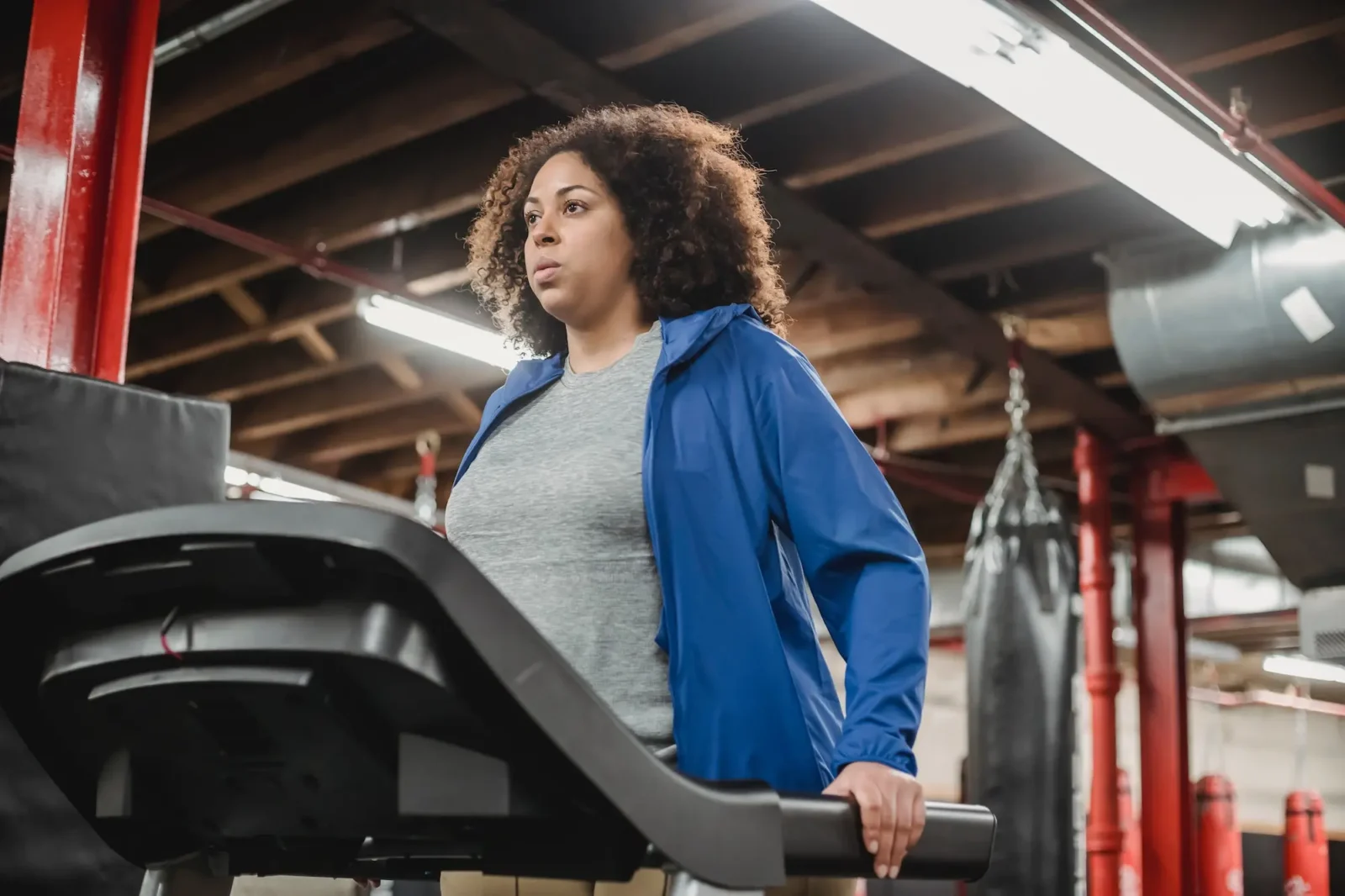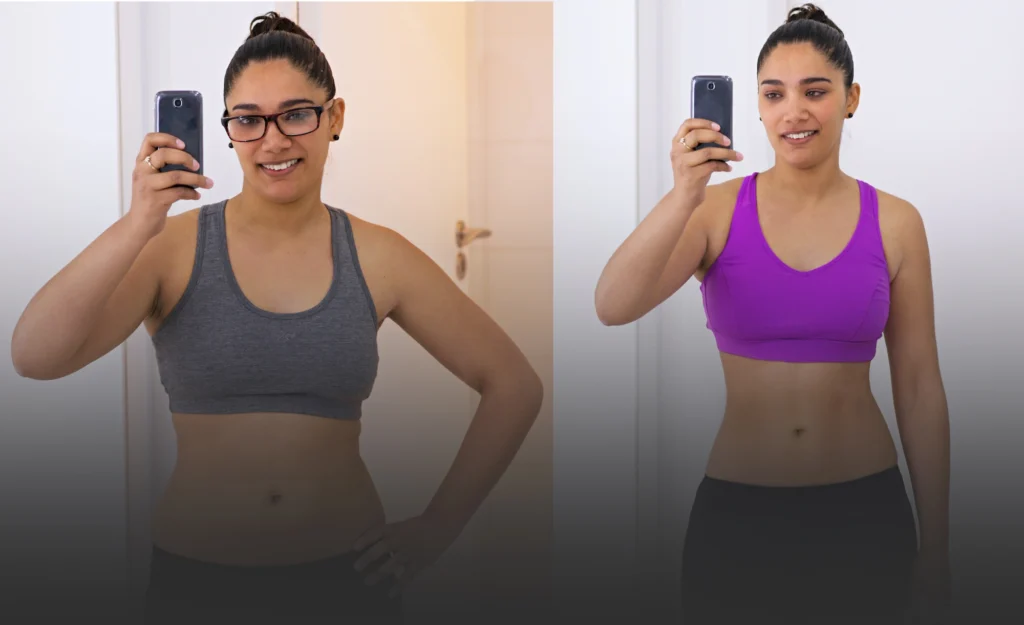How BODi is Flipping the Script on the ‘Imperfection Economy’

Beachbody’s pivot from goal achievement to health esteem is evident in the company’s new name, BODi
Athletech News sat down with the spirited and candid founder and CEO of Beachbody, Carl Daikeler, to hear his perspective on where the industry is headed and why his company is making dramatic changes in its business model. What he told us, though at first surprising, speaks volumes about some of the challenges facing fitness players seeking to make more people fit and healthy.
“Beachbody is dead,” said Daikeler, co-founder, chairman and CEO of BODi, formerly Beachbody.
He went on to explain. “We’ve had a mission statement for 24 years, which is to help people achieve their goals and lead healthy, fulfilling lives. And the programs that we’ve created, famous ones like P90x Power 90, Slim and Six Turbo Jam, Hip Hop Abs—I could list 100 of them—were the first of their kind to give people basically a legit fitness narrative that you might get from a trainer, but right in your own home, and on a finite timeline. We had 100 workouts that help you achieve your goals in 7 days, 21 days, 60 days, 90 days. It was awesome. And it helped people achieve their goals.”
Then, suddenly, the company made the decision to change its name, and announced last October the platform would now be called BODi, a moniker it had been considering for its premium subscription.
When asked why such a drastic move, Daikeler’s response was immediate and candid.
“Because, not only is Beachbody dead, but the fitness and diet industry is largely dead. The industry continues to execute an old playbook that needs to convince people of their imperfection in order to engage them. Play one is you’re not good enough, you need to lose weight, so join my gym. And play two is, you are never good enough. There’s always something more to achieve. That’s called permanent dissatisfaction.”
Daikeler’s aha moment came when he realized that this is the example he’s setting for his kids, ages 14 and 23.
“When we come up with programs, I think about what I want them to see as the legacy of this business that we’ve built. So I knew we had to flip that script.”
Unlike many fitness executives, Daikeler didn’t come into this business through his athletic background, workout discipline or secret formula for helping get others in shape. If anything, it was the absence of these characteristics that attracted him to the space.
“I’m not a fitness person, I don’t like working out. I don’t like eating well. I was a quasi-athlete in school, but I wasn’t disciplined. I have no problem not exercising. I didn’t love it enough to sacrifice sleep for it unless I had some vacation or something coming up. But what would be psychologically very motivational for me was if I had a timeline. Going from day one to day 90, for instance.”
This became the genesis of the business, and the part of the Beachbody mission that, Daikeler said, the company “ran the hell out of for 24 years.” The company has grown from its flagship P90x product to a collection of almost 100 digital exercise programs, a nutrition business whose core product Shakeology represents more than half of company sales, connected fitness programs that include a bike, and other products and services. The company went public in 2021 through a SPAC, or special purpose acquisition company, and is now traded on the New York Stock Exchange. Last year the company had 2.5 million subscribers and sales of almost $700 million.
In the latter part of the last decade, two trends started to eat away at the Beachbody business model. The first was the digital revolution in media. Beachbody’s original strategy was to sign up a customer and ship him or her a box of DVDs with a note wishing them good luck with the 60- or 90-day program. By 2016, the company could no longer put off the shift to digital, which also shifted the customer relationship to a more continuous dialogue.
The second trend that made Daikeler question what Beachbody was doing was body positivity.
“I started to see some problems materialize, not just in our business model, but in the surroundings, people not responding with enthusiasm to what they used to, which were the ‘before’ and ‘after’ photos.”
Although Daikeler claims that intrinsically there were health benefits behind those photos, those were overpowered by the negative reactions, and eventually the connotation of the name Beachbody began to undermine the company’s ability to deliver on its mission. Daikeler recounted searching Google for Beachbody, and instead of seeing his company listing, he would see Kim Kardashian “flaunting her beach body in Malibu,” indicating that the term was starting to take on a newer, narrow definition, not the one originally intended by the brand.
“It started to limit and, in fact, suppress our ability to achieve our mission statement.”
“The industry continues to execute an old playbook that needs to convince people of their imperfection in order to engage them. Play one is you’re not good enough, you need to lose weight, so join my gym. And play two is, you are never good enough. There’s always something more to achieve. That’s called permanent dissatisfaction.”
-Carl Daikeler, co-founder, chairman and CEO of BODi, formerly Beachbody
For the last six years, the company has been struggling to evolve from a company that was great at the first part of its mission, that of helping people achieve their goals in a fixed period of time, to one that also delivers on helping people lead healthy, fulfilling lives, which it feels it has failed on.
The company’s recent financial performance indicates it might not be a bad time for a strategy shift. In the twelve months ending December 31, 2022, total revenue dropped 21% compared to the same period in 2021 and 8% below its pre-COVID baseline.
The missing element, according to Daikeler, is to help people feel better about themselves and to stop participating in the permanent dissatisfaction business.
“We made a decision last year that we were going to pursue a completely different category, one that we call health esteem, that combines immediate appreciation of who you are with a complete lack of a requirement to do anything in order to improve how you feel about yourself and be worthwhile in the world.”
On March 2, Beachbody added an entire new layer to its platform of positive mindset to help people love themselves. From moment one, before the first workout, it helps you, among other things, figure out how to eat more dessert, how to enjoy all the food groups that you want, and how to embark on a fitness program that lets you “have a real life.”
The health esteem routine will include masterclasses from authors and positive psychology experts to help people feel better about themselves and the world in general. The idea, says Daikeler, is that once you you’ve repaired your self-esteem and appreciate yourself, you can choose the right workout or nutrition program that serves you and helps you, not fixes you in a judgmental way.

“We’re not telling you that you need to lose 50 pounds. We’re saying we can get you strong enough, get your metabolism going, with maybe 15 workouts a month, which we call a body block. Do five workouts a week for three weeks, take the fourth week off or go walking or whatever. But give yourself the freedom to live life, have a vacation without thinking ‘I gotta stay on my program.’”
“‘Do you feel good?’ is not a binary question, not black and white, it’s a continuum. And that’s what’s wrong with the industry we call the imperfection economy. It’s torturing its customers, telling them they’re not good enough.”
Daikeler recalls going into a gym that had painted across the wall the slogan “Proud, but never satisfied.”
“Can you imagine? I thought, ‘I need to get out of the industry as quick as possible if that is the mentality that we are promoting, never satisfied, never pleased with myself, which is why you have suicide, overeating, escapism, people who are overdoing plastic surgery, overtraining, and body dysmorphia.’ I refuse to participate in it anymore.”
He may have a point. Forbes publishes a list of the top New Year’s health resolutions each year. In 2023 the number one New Year’s resolution wasn’t lose weight, improve my fitness, or improve my nutrition. It was improve my mental health.
Daikeler feels there is a lot of virtue signaling going on.
“The tech companies are all claiming that they’re not in the imperfection economy. But if you wear a monitoring device, and it tells you if you’re imperfect today and didn’t close your rings before midnight, that’s stress-inducing.”
“There are gyms that say they don’t allow judgment, but if you bang the weights, or grunt, they sound an alarm. What is that? If I make too much noise working out, the whole room is gonna judge me now?”
“It’s not enough to just change the name, you need to really change the direction of the company. And, can they take the weight watching out of the company by just taking it down to the acronym of WW? It’s still weight watching, right? How about self-esteem watching? What about feel-good watching? What about what-do-you-need-as-a-human-being watching??”
When asked how BODi will break through all the industry noise and walk the walk, not just talk the name change talk, he quipped: “It’s easy. I’m no longer in that business. You probably don’t even want me in your publication.”
“‘Do you feel good?’ is not a binary question, not black and white, it’s a continuum. And that’s what’s wrong with the industry we call the imperfection economy. It’s torturing its customers, telling them they’re not good enough. Then never telling them they are good enough. That is a recipe for a psychological impossible-to-escape cycle.”
Daikeler makes it clear that there’s nothing wrong with looking great, and if it’s a byproduct of feeling great, then even better. And the only way to serve the almost 150 million people in North America who are overweight or obese is to get out of the abs business and into the feelings business.
“Let us be this sunshine in your life, the thing that feels great, not this nagging voice that’s feeding into the judgment, the criticism, and the competition. Instead, this voice will say ‘Hey, back off, you need to take a day off to get your head straight. Because you’re in here for the wrong reason, man. Like, come back in when you’re doing this because it feels so good to push that hard.'”
“And then when it’s 5 a.m. and you’re lying in bed, you’re thinking, ‘I gotta get down there because I love the way I feel about this. I love the way I feel about myself. I love that I love myself enough to do this.'”
“I f#*@-ing rock.”
This article originally appeared in Athletech’s State of Fitness 2023 Insider’s Outlook report. Download the report here.



